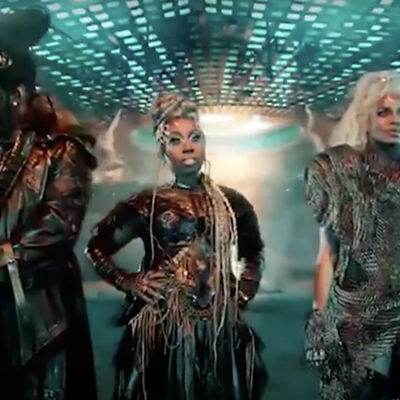Bill Ham, the maverick businessman who managed ZZ Top for more than 30 years, has passed away. According to the Austin American-Statesman, his death was confirmed by the Travis County Medical Examiner’s Office without disclosing a cause. Once one of the most powerful music-business figures in Texas, if not the most, Ham built an almost mystical reputation as a man who was fiercely protective of his clients and fierce against his adversaries, and gave almost nothing away to anyone outside the band’s inner circle. He was 79.
“A basic rule of the Bill Ham school of management is that if you don’t keep people guessing, there is no mystique,” Texas Monthly’s Joe Nick Patoski wrote in December 1996.
Ham, whom Patoski called “a rough boy from Waxahachie,” recorded the single called “Dream On” in the early 1960s; although the song went nowhere, Patoski says it provided Ham with invaluable insight into the music business. After selling insurance for a while, Ham began working as a promoter for a record-distribution company owned by the Daily family of Cactus Music fame. In 1967, another local promoter introduced Ham to Billy Gibbons backstage at a Doors concert. Gibbons was already one of the hottest guitarists in the South thanks to his band the Moving Sidewalks, who fortuitously split up shortly after their encounter. Ham helped Gibbons recruit two of the former Sidewalks, Dan Mitchell and Lanier Greig (who was more of a semi-member), for a new band the two men dubbed ZZ Top that lasted all of one single, “Salt Lick,” in its original lineup. (The song was released on Scat Records, a label Ham had created.) The song’s lack of traction led to turnover in the band, and Gibbons and Ham quickly recruited a drummer from Dallas named Frank Beard.
“Several other bassists filled in before Beard called his friend and fellow Dallasite Dusty Hill for a tryout,” Patoski writes. “Playing a borrowed bass, Hill suggested a shuffle in the key of C. Two hours later, he was hired.”
The rest was history, including Ham’s negotiating a reported $30 million contract for ZZ Top in 1992 after the band left Warner Bros., which had released Tres Hombres, Deguello and the multiplatinum Eliminator and Afterburner albums, among others. In 2013, Beard recalled how Ham convinced the University of Texas at Austin and then-football coach Darrell K. Royal to allow a 1974 concert at Memorial Stadium, which now also bears Royal’s name. Dubbed the “First Annual Texas-Sized Rompin’, Stompin’ Barn Dance & Barbecue,” the concert was held on Labor Day Weekend and drew an estimated 80,000 fans who risked heatstroke to enjoy Santana, Bad Company and Joe Cocker as well as ZZ Top.
The show took place about a year after the band's breakout release of Tres Hombres, known for the band’s signature tune “La Grange.” It was talked about for years afterward, and helped solidify ZZ Top’s status as both Texas icons and one of the biggest rock bands of the era. The show also ran out of food and water, and left burns all over the stadium’s recently installed AstroTurf field. DKR-Memorial Stadium wouldn’t host another concert until the Eagles’ “Hell Freezes Over” tour in 1994.
“We weren't that big yet,” Beard told the Austin Chronicle. “We were starting to get big, but I didn't think we were that big. It always seemed like a pie-in-the-sky dream to me, that we could pull off something like that. Then he got Darrell Royal to let us play in the football stadium. I don't know that it ever happened before, but it certainly never happened afterward!
“The fans messed up his brand-new AstroTurf football field, and he swore, 'There will never be another show there,’” Beard added.
"You had to prepare yourself that you'd be in for a survivalistic experience, because otherwise you were going to suffer," Bill Pennington, a photographer who attended the concert, told ESPN last year. ”The bathrooms were a wreck; the sinks had been broken off the walls. People were trying to get water, but there was a lot of damage.”
Although he rarely talked to the press (pictures of the man are likewise scarce), Ham also owned the Hamstein publishing company, one of the music industry’s leading publishing houses at the time of its 1995 merger with Great Cumberland Music. According to a 1997 Billboard article, at the time artists licensed under Hamstein Cumberland, as it was then known, had been responsible for 78 Billboard Top 10 singles and 34 No. 1s. His clout was such that the Statesman had Ham at No. 1 on its list of the most powerful people in Texas music, published in 2000. Patoski’s 1996 Texas Monthly piece noted that at that point, ZZ Top had sold more than 50 million albums worldwide and brought in more than $200 million on the road.
Ham and ZZ Top went their separate ways in 2006, after their deal with RCA lapsed. By that point, Ham was running Lone Wolf Management, whose other clients included Clint Black, whom Ham discovered playing James Taylor covers in Katy-area coffeehouses; Dusty Hill’s brother Rocky, and Austin guitar-slingers Eric Johnson and Van Wilks.
“Bill is a guy who almost single-handedly made Texas more competitive with New York or Los Angeles as an industry hub,” Casey Monahan, then director of the governor’s Texas Music Office, told the Statesman in 1999, in an article quoted in today’s obituary. “There are a lot of people who want to know how he has done it, but we may never know.”
Support Us
Houston's independent source of
local news and culture
account
- Welcome,
Insider - Login
- My Account
- My Newsletters
- Contribute
- Contact Us
- Sign out
Bill Ham, Ex-ZZ Top Manager and Texas Music-Industry Giant, Passes Away at 79
Chris Gray June 22, 2016 11:14AM
[
{
"name": "Related Stories / Support Us Combo",
"component": "11591218",
"insertPoint": "4",
"requiredCountToDisplay": "4"
},{
"name": "Air - Billboard - Inline Content",
"component": "11591214",
"insertPoint": "2/3",
"requiredCountToDisplay": "7"
},{
"name": "R1 - Beta - Mobile Only",
"component": "12287027",
"insertPoint": "8",
"requiredCountToDisplay": "8"
},{
"name": "Air - MediumRectangle - Inline Content - Mobile Display Size 2",
"component": "11591215",
"insertPoint": "12",
"requiredCountToDisplay": "12"
},{
"name": "Air - MediumRectangle - Inline Content - Mobile Display Size 2",
"component": "11591215",
"insertPoint": "4th",
"startingPoint": "16",
"requiredCountToDisplay": "12"
}
,{
"name": "RevContent - In Article",
"component": "12527128",
"insertPoint": "3/5",
"requiredCountToDisplay": "5"
}
]
KEEP THE HOUSTON PRESS FREE...
Since we started the Houston Press, it has been defined as the free, independent voice of Houston, and we'd like to keep it that way. With local media under siege, it's more important than ever for us to rally support behind funding our local journalism. You can help by participating in our "I Support" program, allowing us to keep offering readers access to our incisive coverage of local news, food and culture with no paywalls.
Chris Gray has been Music Editor for the Houston Press since 2008. He is the proud father of a Beatles-loving toddler named Oliver.
Contact:
Chris Gray
Trending Music
- Top 10 Butt-Rock Bands of All Time
- The Marías Go Deep in Concert
- Houston Concert Watch 7/24: Zach Bryan, Koe Wetzel and More
-
Sponsored Content From: [%sponsoredBy%]
[%title%]

Don't Miss Out
SIGN UP for the latest
Music
news, free stuff and more!
Become a member to support the independent voice of Houston
and help keep the future of the Houston Press FREE
Use of this website constitutes acceptance of our
terms of use,
our cookies policy, and our
privacy policy
The Houston Press may earn a portion of sales from products & services purchased through links on our site from our
affiliate partners.
©2024
Houston Press, LP. All rights reserved.





